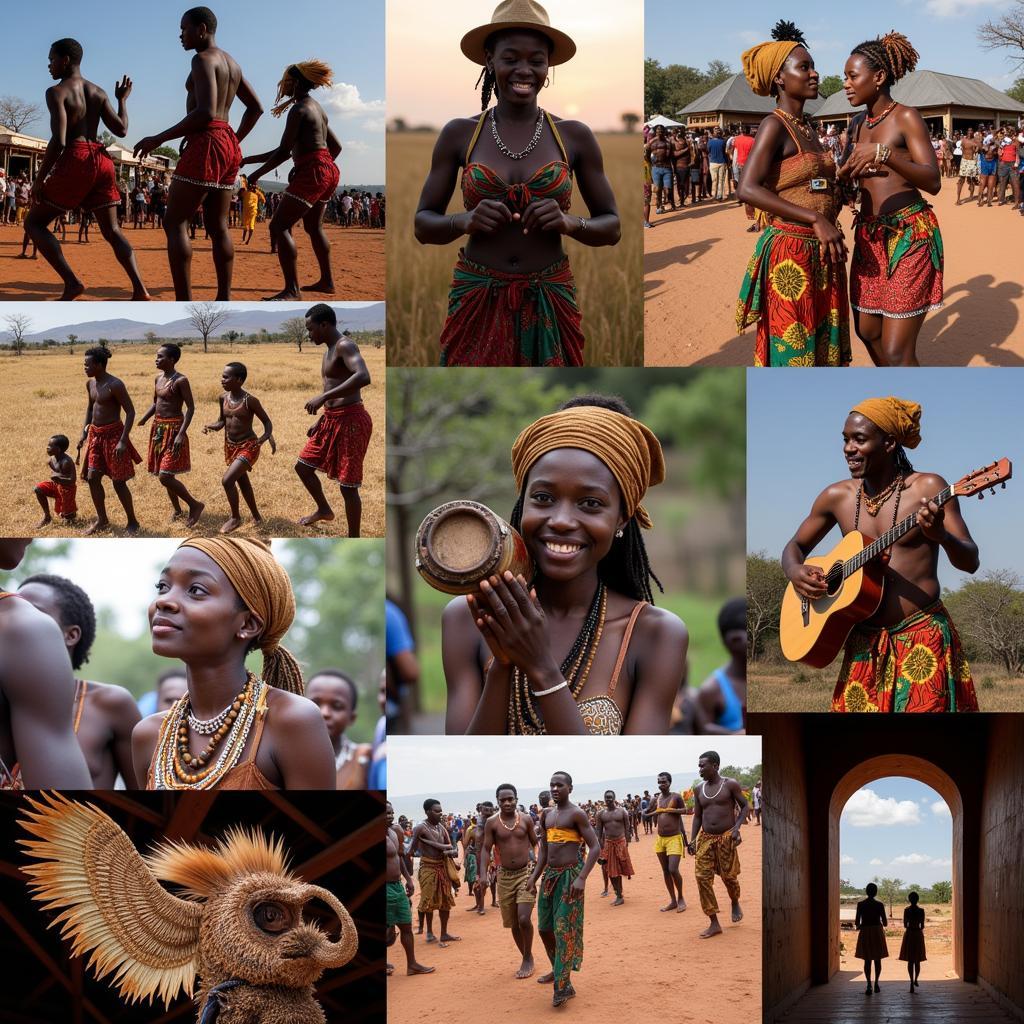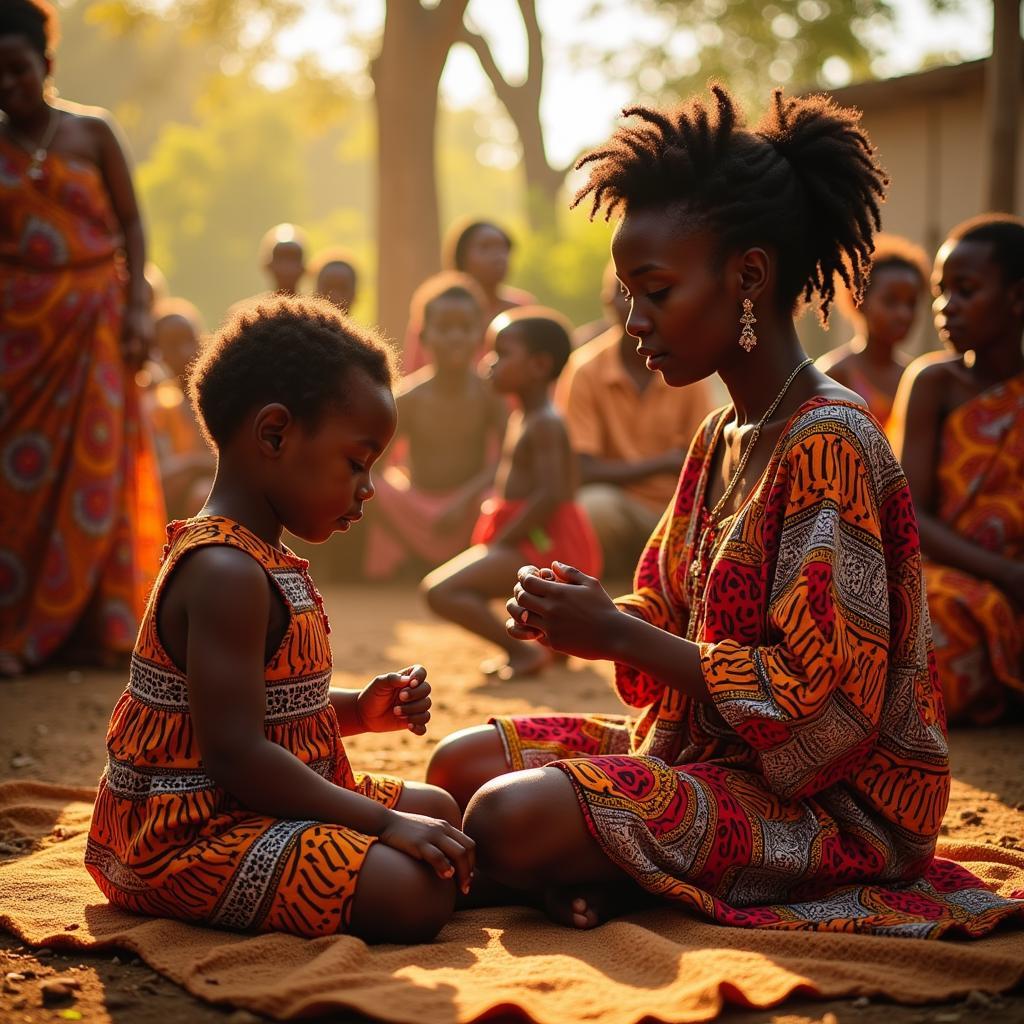Exploring African Countries on the Equator
The equator, an imaginary line dividing the Earth into the Northern and Southern Hemispheres, traverses several countries across the globe. In Africa, a handful of nations boast this unique geographical feature. This article delves into the fascinating world of African Countries On The Equator, exploring their diverse cultures, landscapes, and the significance of their equatorial location.
Several African countries are privileged to have the equator passing through them, creating a unique environment and cultural blend. Let’s explore the remarkable characteristics of these equatorial nations. After exploring a bit about the geographical significance, we will delve into the rich cultures, climates, and diverse landscapes of these nations. African countries passing through equator.
The Significance of the Equator in Africa
The equator’s presence influences these African countries in profound ways, shaping their climate, biodiversity, and even cultural practices. The consistent sunlight and warm temperatures contribute to a unique ecosystem teeming with life. Moreover, the equator serves as a reference point for navigation and geographical studies, highlighting the interconnectedness of our world.
Which African Countries Lie on the Equator?
Seven African countries are intersected by the equator: São Tomé and Príncipe, Gabon, Republic of the Congo, Democratic Republic of the Congo, Uganda, Kenya, and Somalia. Each nation offers a unique blend of cultures, landscapes, and experiences, showcasing the diversity of the African continent.
Exploring the Equatorial Nations
Let’s delve into the individual characteristics of these equatorial countries:
- São Tomé and Príncipe: This island nation off the coast of West Africa is known for its stunning beaches, volcanic peaks, and rich Portuguese colonial history.
- Gabon: Located on the west coast of Central Africa, Gabon boasts lush rainforests, abundant wildlife, and a commitment to conservation.
- Republic of the Congo: This country, also known as Congo-Brazzaville, is known for its vibrant music scene, diverse ethnic groups, and important role in Central African politics.
- Democratic Republic of the Congo: Often referred to as DR Congo or Congo-Kinshasa, this vast nation is home to the Congo Basin, the second-largest rainforest in the world.
- Uganda: Known as the “Pearl of Africa,” Uganda is renowned for its diverse wildlife, including mountain gorillas, chimpanzees, and a wide array of bird species.
- Kenya: From the iconic savannas of the Maasai Mara to the bustling capital city of Nairobi, Kenya offers a captivating blend of wildlife, culture, and urban life.
- Somalia: Located on the Horn of Africa, Somalia boasts a rich cultural heritage, ancient history, and a unique coastal landscape.
Climate and Biodiversity along the Equator
The equatorial climate, characterized by high temperatures and humidity, contributes to the rich biodiversity found in these African nations. The constant sunlight and rainfall create ideal conditions for lush rainforests, diverse plant life, and a plethora of animal species. This abundance of life creates unique ecosystems that are vital to the planet’s health.
Dr. Aminata Sow, a renowned biodiversity expert, explains, “The equatorial region of Africa is a hotspot for biodiversity, with countless species of plants and animals found nowhere else on Earth. The consistent climate provides a stable environment for these organisms to thrive.”
Cultural Influences and Traditions
The equator doesn’t just impact the environment; it also influences the cultural landscape of these African countries. The shared experience of living in an equatorial climate has shaped traditions, agricultural practices, and even artistic expressions. 3 african countries through which the equator passes in africa. Many communities maintain close ties to the land and celebrate the natural world through their customs and beliefs.
Professor Joseph Okello, a cultural anthropologist specializing in East Africa, notes, “The equatorial region has fostered a deep connection between people and nature. Many traditions revolve around the cycles of the seasons and the abundance of life found in these areas.”
Economic Activities and Challenges
The equatorial location also plays a role in the economies of these African countries. Agriculture, tourism, and natural resource extraction are important economic activities, benefiting from the fertile land and unique biodiversity. However, challenges such as climate change, deforestation, and poverty continue to impact these nations, requiring sustainable solutions to ensure their long-term prosperity. You can find more resources about African geography on African country animal map geographical.
 Cultural expressions in Equatorial Africa
Cultural expressions in Equatorial Africa
Conclusion
The African countries on the equator offer a unique blend of natural wonders, cultural richness, and economic opportunities. Understanding the impact of the equator on these nations is crucial for appreciating their significance in the global context. From the vibrant rainforests to the diverse communities, exploring African countries on the equator is a journey into a world of vibrant contrasts and enduring beauty. 3 african countries through which the equator passes in american. african country south of equator.
FAQ
-
What is the significance of the equator? The equator is the imaginary line that divides the Earth into the Northern and Southern Hemispheres. It is the point where the Earth is widest.
-
How many African countries are on the equator? Seven African countries are intersected by the equator.
-
What is the climate like in equatorial Africa? The climate is typically hot and humid, with heavy rainfall throughout the year.
-
What are some of the unique challenges faced by equatorial African countries? Challenges include climate change, deforestation, and poverty.
-
Why is biodiversity important in equatorial Africa? The region is a hotspot for biodiversity, with many species found nowhere else on Earth. This biodiversity plays a vital role in the planet’s health.
-
What are some of the major economic activities in these countries? Agriculture, tourism, and natural resource extraction are key economic activities.
-
How does the equator influence culture in these countries? The equator has shaped traditions, agricultural practices, and even artistic expressions in these nations.
Further Exploration
Consider these related questions and topics for a deeper understanding of Africa and its equatorial nations:
- The impact of colonialism on equatorial African countries
- Conservation efforts to protect the unique biodiversity
- The role of these countries in addressing climate change
- The cultural significance of the equator in different African communities
If you need any assistance or further information, please don’t hesitate to contact us. Call us at +255768904061, email us at [email protected], or visit us at Mbarali DC Mawindi, Kangaga, Tanzania. Our customer service team is available 24/7 to assist you.

